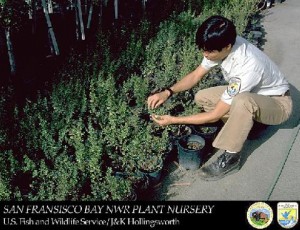Jas’ Sustainable Life List
James Handley, Jas to us friends, emailed me his list of changes or practices for minimizing one’s impact. This is his response to Iuval’s practices on his biodiesel bus in Arkansas. Jas is a lawyer for the Price Carbon Campaign, promoting a carbon tax. Thanks for your hilarious and wise list!!!
Hi Wren,
That was a funny blog. Here’s my sustainable living list, in rough order:
 1) Family planning: We need to (and will, one way or another) reduce world population by ~ 2/3 within a century. Preferably zero, but maximum one child per couple. Each additional person multiplies your impact. This is, by far, number one. If you have zero kids, the rest of this list is essentially, optional. You’ve done more than everything else on this list will.
1) Family planning: We need to (and will, one way or another) reduce world population by ~ 2/3 within a century. Preferably zero, but maximum one child per couple. Each additional person multiplies your impact. This is, by far, number one. If you have zero kids, the rest of this list is essentially, optional. You’ve done more than everything else on this list will.
2) Eschew debt so you can work at something socially useful instead of becoming a debt slave to an exploiter. Keep overhead low. Don’t buy anything new. Even if you have to live like a grad student, keep half a year’s expenses in the bank so you can quit any job that isn’t satisfying.
 3) Minimize or eliminate air travel. (Each passenger in a full jetliner has about the same impact as driving the same distance in an SUV, alone. Flying burns gobs of dirty fuel.) No legal activity that I can think of does more damage per minute to the planet than flying. See George Monbiot’s book, Heat for a full explanation. Discharging CO2 into the stratosphere is a huge cause of global climate chaos.
3) Minimize or eliminate air travel. (Each passenger in a full jetliner has about the same impact as driving the same distance in an SUV, alone. Flying burns gobs of dirty fuel.) No legal activity that I can think of does more damage per minute to the planet than flying. See George Monbiot’s book, Heat for a full explanation. Discharging CO2 into the stratosphere is a huge cause of global climate chaos.
4) Drive only when absolutely necessary, avoid rapid acceleration and braking and strictly obey speed limits. Live where you work, play and recreate– close to loved ones. Bike, use public transit, carpool instead of driving alone. (Biodiesel and hybrids are mostly feel-good BS, especially if you end up buying a new vehicle or driving more. Bikes are righteous.)
5) Lower the thermostat as far as you can and then keep going. Adapt to seasons. Wear seasonally-appropriate clothing, especially thermal underwear. Take infrequent short, tepid showers, turn water off when soaping. Don’t run water continually to wash dishes. Take cool showers in summer instead of air conditioning.
 6) Plant shade and fruit trees.
6) Plant shade and fruit trees.
7) Insulate and seal your house, especially the attic.
![]() Use a clothes line instead of a dryer and yes, wash only clothes that are really dirty.
Use a clothes line instead of a dryer and yes, wash only clothes that are really dirty.
9) Grow as much food as you can without blowing any of the other guidelines to do it. Eat low on the foodchain, not meat-centered. Compost. Don’t drink bottled water or any beverage or food in one-serving containers.
10) Don’t nag or harass other Earthlings who don’t practice the above, but don’t mingle body fluids or finances with anyone who doesn’t at least get most of them and steer clear of anyone addicted to money, drugs or power. – jh


This is Iuval, signing in as Wren, because I don’t want to establish an account on this site:
First of all, even if all you cared about was the greenhouse gas issue, based on some calculations that my friends Tim and Sally (the producers of the documentary film “What a way to go, life at the end of empire”) did in response to Al Gore’s list a few years ago (and which I adapted to your list), the percent carbon reduction from these steps is still (as in T and S’s original estimate) only about %22 with overly optimistic assumptions. I’ve heard estimates of at least 70% reduction necessary (although I am not now clear if that’s just for the US, assuming no changes from other countries) immediately to halt global warming. Even if these assumptions (requiring behavioral changes from at least 50% of the population of the US) were implemented (unlikely), they may quickly be offset by any growth in the economy (so let’s hope that Obama fails in his attempt to stimulate the beast).
Second of all, I also care about one other thing: freedom for all. That means for most of us in the 1st world who are working way too hard just to keep up our standard of living and our ruggedly individualistic, consumeristic and exploitive mindset (I haven’t had to do this in the past 4 years–thankfully so I can focus on more important matters), for all those in the third world who are making our standard of living possible with their labor, their land, their natural resources and their diseases due to sweatshop conditions, and our soldiers and their victims who are also making petroleum available at a still cheap price to us. You allude to some of this in your list, but if you care about freedom then you would also try to do everything possible to start producing not just food, but everything people need locally (not you individually, but in conjunction with a bunch of people). You would also start sharing a lot more resources, especially housing. You would talk about local production, not just consumption (you do talk about production of food, although if you are like most, this is more about hobby gardening than about serious satisfying of nutritional needs–see below). The vision of an ecologically sustainable planet with sweatshops, war, masses toiling away at mostly menial jobs in the “developed” world is not appealing to me. No thanks to ecological sustainability without freedom and justice. Part of the reason why factories have mostly relocated abroad (besides the labor savings to corporations) is the environmental movement–NIMBY means in the third world. We have to start producing stuff that we really need, not just food–locally. If it’s toxic and polluting to a point we are not willing to live with, we either find a better way or stop making and BUYING it.
Here is the analysis leading to the 31% with your original comments in quotes (also see more comments to your comments):
Jas said:
hi Dana,
That was a funny blog. Here’s my sustainable living list, in rough order.
“1) Family planning: We need to (and will, one way or another) reduce world population by ~ 2/3 within a century. Preferably zero, but maximum one child per couple. Each additional person multiplies your impact. This is, by far, number one. If you have zero kids, the rest of this list is essentially, optional. You’ve done more than everything else on this list will.”
I’m with you on that one, although in the US and europe we don’t have a significantly increasing population and though we could use some reduction, our main problem as far as trashing the planet is consumerism. Assuming a steady population as in the past (even if we decrease our population, there is that population pressure valve from catholic south america which will continue to discharge into the US), I won’t add this to carbon reductions (nor subtract it). I see voluntary agreements to limit one’s offspring as more symbolic of showing that we care about other people and the planet and are not ruggedly individualistic or (worse!) ruggedly familial.
“2) Eschew debt so you can work at something socially useful instead of becoming a debt slave to an exploiter. Keep overhead low. Don’t buy anything new. Even if you have to live like a grad student, keep half a year’s expenses in the bank so you can quit any job that isn’t satisfying. ”
I like this one alot too, but not because it does much for environmental sustainability but for what it does for human freedom, creativity and potential. I suppose it does something indirectly towards sustainability by limiting consumerism. I won’t include it in the total CO2 savings, although we can include it later, if anyone does the math.
“3) Minimize or eliminate air travel. (Each passenger in a full jetliner has about the same impact as driving the same distance in an SUV, alone. Flying burns gobs of dirty fuel.) No legal activity that I can think of does more damage per minute to the planet than flying. See George Monbiot’s book, “Heat” for a full explanation. Discharging CO2 into the stratosphere is a huge cause of global climate chaos ”
Has anyone done an analysis to figure out how much less air travel would happen (if say, there were 50% less passengers)? I’ll assume that the air travel market would respond efficiently and cut down by 50%, and use the same number from below for driving 50% less
“4) Drive only when absolutely necessary, avoid rapid acceleration and braking and strictly obey speed limits. Live where you work, play and recreate– close to loved ones. Bike, use public transit, carpool instead of driving alone. (Biodiesel and hybrids are mostly feel-good BS, especially if you end up buying a new vehicle or driving more. Bikes are righteous.)”
You’ll save one pound of carbon dioxide for every mile you don’t drive. Analysis: We figured a 50% reduction in driving. Annual miles driven is 2.3 trillion ( HYPERLINK “https://www.worldwatch.org/node/99″ https://www.worldwatch.org/node/99) Half of that is 1.15 trillion miles, which translates into 1.15 trillion pounds, or 575,000,000 >tons of CO2 saved. >
“5) Lower the thermostat as far as you can and then keep going. Adapt to seasons. Wear seasonally-appropriate clothing, especially thermal underwear. Take infrequent short, tepid showers, turn water off when soaping. Don’t run water continually to wash dishes. Take cool showers in summer instead of air conditioning. ”
Moving your thermostat down just 2 degrees in >winter and up 2 degrees in summer could save about 2,000 pounds of carbon dioxide a year. >Analysis: 2,000 pounds per household comes to 105,480,101 tons of CO2 >saved.
6) Plant shade and fruit trees.
A single tree will absorb one ton of carbon dioxide over its >lifetime. > >Analysis: Using a 40-year average lifespan for a tree >( HYPERLINK “http://www.friendsoftrees.org/tree_resources/facts.php” http://www.friendsoftrees.org/.....facts.php), we figured that >each tree would save 50 pounds of CO2 per year. If each person in the US >(299,084,893 US Census Bureau Population Clock > HYPERLINK “http://www.census.gov/population/www/popclockus.html” http://www.census.gov/populati.....ockus.html ) plants one tree, that results in 7,477,122 tons of CO2 saved (temporarily sequestered) per year.
“7) Insulate and seal your house, especially the attic. ”
A worthy endeavor, but you can do much better than the few percent savings by SHARING a (well insulated) house with a bunch of people. You get a factor of 20 (%2000 savings rather than ~5%). I’ll use the same number as for hot water reduction savings that Tim and Sally got:
Use less hot water: It takes a lot of energy to heat water. Use less hot water by installing a low flow showerhead (350 pounds of CO2 saved per year) and washing your clothes in cold or warm water (500 pounds saved per year). Analysis: We figured two low flow showerheads per household and multiplied the clothes washing number by 2.59 (average household size 2000 Census) to get a figure of 1995 pounds of CO2 saved per household. Multiplied by the number of households (above) results in 105,216,400 tons of CO2 saved.
“8) Use a clothes line instead of a dryer and yes, wash only clothes that are really dirty.”
Great, but how about also washing your clothes in a tub instead of using a washing machine?
I’ll assume roughly the same numbers as #7.
“9) Grow as much food as you can without blowing any of the other guidelines to do it. Eat low on the foodchain, not meat-centered. Compost. Don’t drink bottled water or any beverage or food in one-serving containers. ”
Most people who think they grow a significant amount of their food, don’t, if you consider calories grown vs calories eaten. They still buy grains, oils and many starches (even vegans–especially vegans). I won’t include this for greenhouse effects, as I don’t have the time to estimate, and unless we get serious about food it will make little difference.
“10) Don’t nag or harass other Earthlings who don’t practice the above, but don’t mingle body fluids or finances with anyone who doesn’t at least get most of them and steer clear of anyone addicted to money, drugs or power. ”
By mingling your energy (in the form of labor and money) with the global economy, we are doing far worse than mingling bodily fluids with the beast. In order to put our energy towards creating a new economy that is independent of the beast we have to work towards detachment from it.
-IC